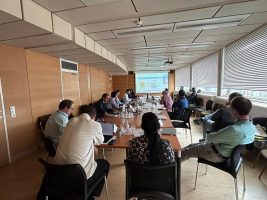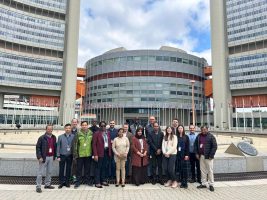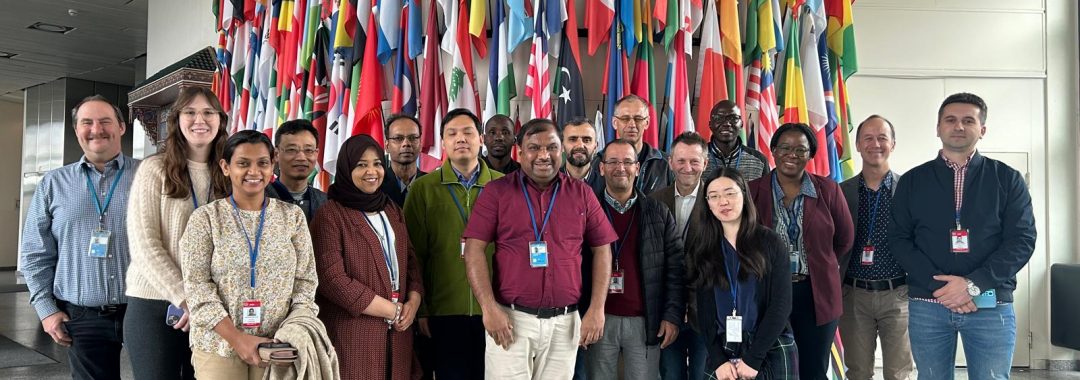The International Atomic Energy Agency (IAEA) is not merely an agency concerned with the peaceful use of nuclear technologies for power generation and medical applications. For example, in partnership with the Food and Agriculture Organisation (FAO), it supports sustainable agricultural production.
One crucial issue common to both human medicine and agricultural production is combating antimicrobial resistance. The IAEA is contributing to this cause by funding coordinated research endeavours, as part of the recently launched five-year project titled "Innovative Nuclear and Related Molecular Approaches for Detection and Characterization of Antimicrobial Resistance in Animal Production Environment“.
In mid-April 2024, the Vienna International Centre hosted the inaugural meeting of "mentors" from developed countries with colleagues from less developed countries, especially those from African and Asian regions. Among the mentors was also Doc. RNDr. Ivan Rychlík, Ph.D., Head of the Department of Microbiology and Antimicrobial Resistance at the Veterinary Research Institute. Doc. Rychlík specialises in utilising innovative mixtures of probiotic cultures to intentionally colonise newly hatched chickens, enhancing their innate resistance, and consequently diminishing the reliance on antibiotics. These procedures have undergone multiple validations through projects supported by the National Agency for Agricultural Research and the project of the National Centre for Biotechnology in Veterinary Medicine NaCeBiVet, funded by the Technology Agency of the Czech Republic.




